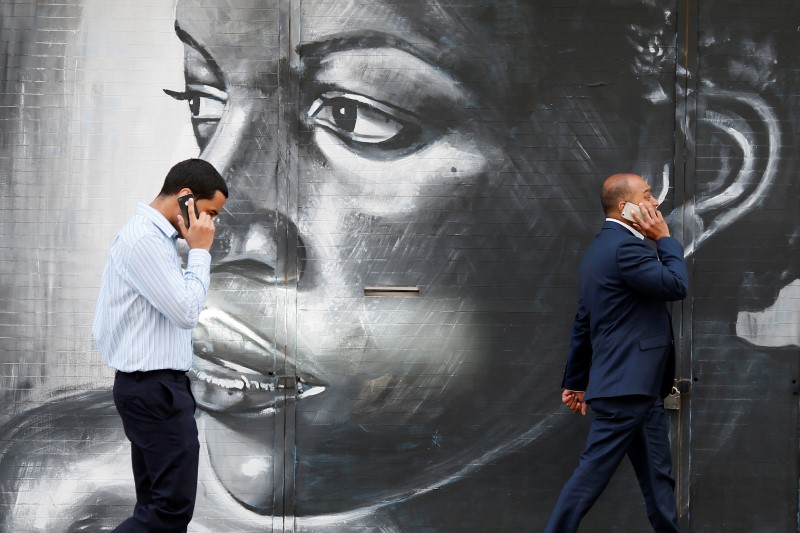LONDON (Reuters) - One third of Britons have undertaken a "digital detox" by ditching their smartphones and tablets to wean themselves off online addiction and to do more in the real world with friends and family, communications industries regulator Ofcom said.
Some 15 million adults had sought temporary respite from the internet, Ofcom said, as adults spent an average of 25 hours online each week, rising to 29 hours for those aged 16-24 and 26 hours for teens.
"The internet has revolutionised our lives for the better. But our love affair with the web isn't always plain surfing, and many people admit to feeling hooked," said Jane Rumble, Ofcom's director of market intelligence.
"So millions of us are taking a fresh look at the role of technology in our lives, and going on a digital detox to get a better tech-life balance."
Ofcom's survey of 2,025 adults and 500 teenagers for its annual Communications Market Report found that going offline for a period made one third of people more productive, while a quarter enjoyed life more.
On the downside, 16 percent said they worried about missing out while they were offline.
Holidays were the favoured time to escape, the survey found, with 30 percent taking some form of digital break and 16 percent purposely visiting a destination with no online access.
While adults were choosing to occasionally deprive themselves of the internet, the choice was more often imposed on teenagers, who were the heaviest users of online services like social networking and instant messaging, Ofcom said.
Six out of 10 teenagers who used a connected device such as a tablet or smartphone said they had been "digitally grounded", having had their device taken away or its usage restricted.

Services like Facebook (NASDAQ:FB) Messenger and WhatsApp have surged in popularity in the last two years amongst all adults, the survey found, with the percentage using instant messaging rising from 28 percent in 2014 to 43 percent in 2016.